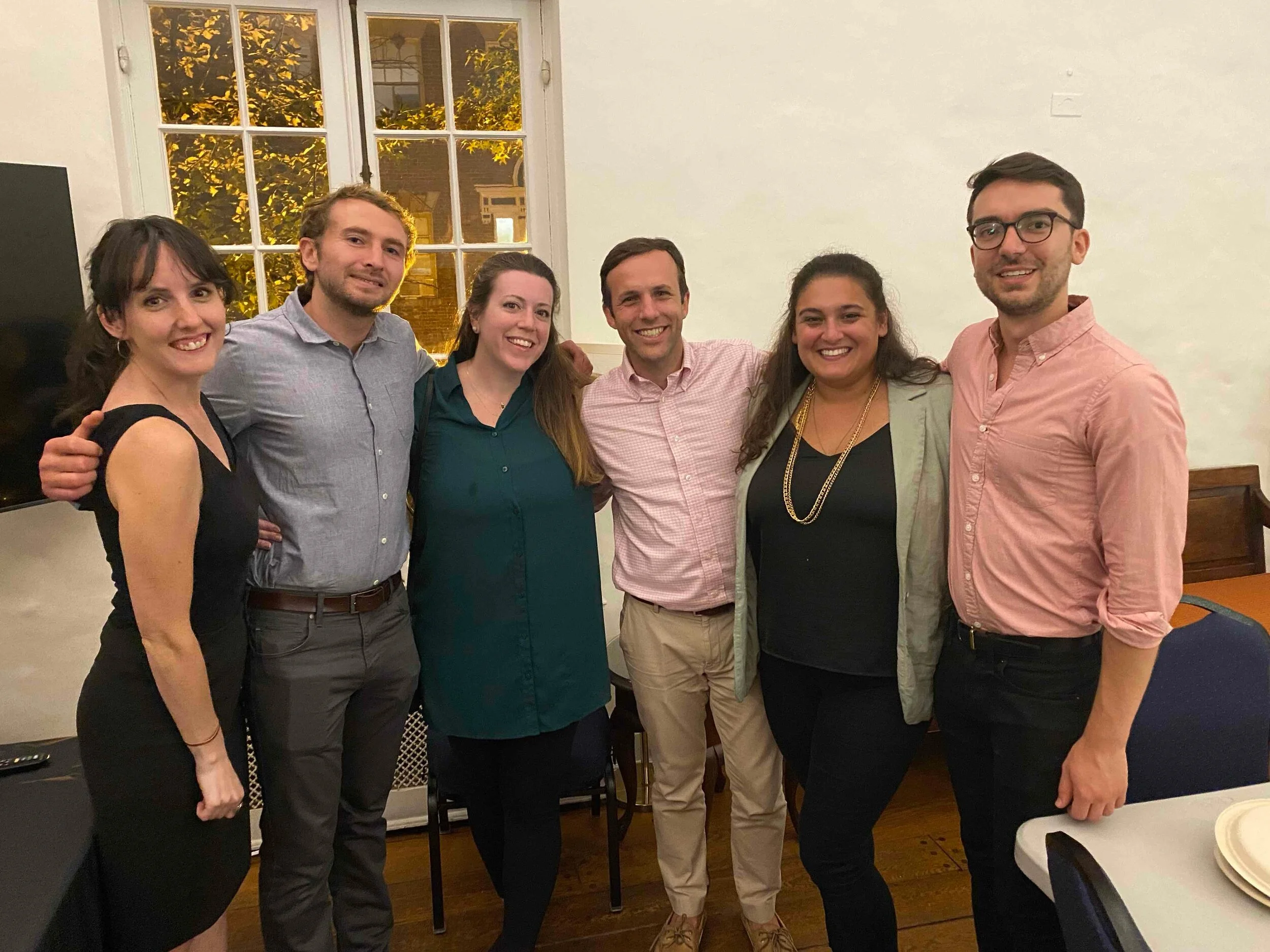In spring 2025, organizations across DC, Maryland, and Ohio found themselves facing unexpected news: a dramatic, across-the-board spike in electricity supply costs beginning in June. For budget-constrained nonprofits—schools, congregations, and community institutions alike—this presented more than a budget line adjustment. It became a source of uncertainty and concern at precisely the time of year when annual budgets are being finalized. What caused this sudden increase? More importantly, what could we do about it?
Read MoreLast year, the Community Purchasing Alliance Cooperative formed a national network of co-ops, the CPA Network (CPA). Three local co-ops now make up the CPA Network: CPA DC, CPA MA and PowerUp OH. Over the past decade, our flagship co-op in DC has helped community institutions save time and money, secure better contract terms, and shift spend to local and BIPOC-owned businesses on over $150 million dollars of contracting.
Read MoreInsurance costs are on the rise — and not by small margins. Nonprofits of every shape and size, from charter schools to religious institutions, are experiencing notable spikes in their insurance premiums. Increases of 15% to 30% annually are becoming more common, and many organizations are seeing these jumps despite having no changes to their claims history, asset valuations, or operational risk.
Read MoreI’ve spent years helping build a strong cooperative of charter schools and nonprofits in Washington, DC. Through that work, we’ve learned that thoughtful, collective purchasing can do more than trim budgets. It can build power, strengthen local economies, and reduce the daily burdens shouldered by operations leaders. This trip reminded me just how much appetite there is for that kind of support in places like Tennessee - and how possible it is to bring it there.
Read MoreAs 2024 comes to a close, our team has been reflecting on all that we’ve accomplished collectively this past year. Together, we have saved mission-driven institutions time and money, shifted contract spend to local, women-owned, and minority-owned businesses, and developed a network of peers that can learn from each other and join hands to create meaningful change. We’re grateful for the role that you’ve played in strengthening the co-op and are excited to share a bit about all that we did together this past year!
Read MoreWhat happens when we build alliances across regions and leverage the buying power of community institutions for the benefit of our communities? Cooperative group purchasing has the potential to offer savings, insights, and solidarity across state lines that furthers the ability of each member to serve their local community.
Read MoreMost actors in the energy industry are motivated by profit. They never look at the utility rate and always encourage organizations to sign contracts—sometimes to the organization’s detriment. In the last year, we have consistently sent members to the default utility rate when the utility has been the best option…
Read MoreThrough this work, you have taught me so much about facility management, school operations, strategic procurement, energy markets, community wealth building, economic development -- and about leadership. I will be forever grateful for what I’ve learned working with and alongside you in building this incredible vehicle for social change.
Read MoreAfter a decade of service and impact at The Community Purchasing Alliance, our much-valued colleague, collaborator, and founding Executive Director Felipe Witchger is moving on to exciting new endeavors in impact-first investing with his new project, the Francesco Collaborative.
Read MoreNatural gas markets are spiking in the wake of this month’s winter storm in Texas and ensuing power outages. This kind of market volatility is precisely why community institutions partner with the Community Purchasing Alliance to collectively purchase energy. Is your institution insulated from market risks?
At CPA-Coop we bring decision makers together to tackle common challenges - finding solutions that are stronger and more resilient than if we’d try to go about the process alone. Our trust and camaraderie is especially evident in the wake of COVID 19 and the protests that gripped our nation.
Read MoreNow more than ever, CPA Co-op is focused on listening and responding to the needs of our community. We’ve been in communication with leaders in five regions of the country, and the vast majority of them have indicated a willingness and need to continue purchasing PPE and other COVID Response supplies in the anticipation of reopening by the end of the summer.
Read MoreIt all started with an avocado. I was a teacher in Detroit with a classroom that door didn’t lock and an unavoidable open door policy. Students sought refuge from the lunchtime fray in my quiet classroom, and thus our “Lunch Bunch” was born.
Read MoreHere is an opportunity where you can make a good decisions for our own institution and contribute to building a vehicle to tackle systemic racism in our economics.
Read MoreAll of us at the Community Purchasing Alliance wish to say, in no uncertain terms, that we stand with Black communities and everyone who is hurting in the wake of George Floyd’s violent death in Minneapolis, Minnesota. We are saddened and outraged that in 2020 America, we are still losing beloved members of our community to systemic racism and police brutality.
Read MoreWhen the COVID-19 crisis arrived in the US, it was clear that, because of the virus' airborne contagion nature, that PPE (personal protective equipment) would be needed in healthcare centers and for anyone who would be in touch with other people. And given the many supply shortages (and long lead times), CPA Co-op wants to make sure our members and participants have enough masks, sanitizer, thermometers to be able to open safely. Our reopening blog series is a synthesis of all that we’ve learned from our research and conversations with members and participants.
Read MoreNow more than ever, organizations are doing all they can to reduce operating costs and capital expenditures. Despite widespread social and economic shutdowns amid the COVID-19 crisis, many community institutions still need to replace critical HVAC equipment to ensure that systems are operational once we can return to our buildings. In this article, we’ll dive into our most recent HVAC RFP and pull back the curtain on the ways that our group purchases help organizations save significant amounts of money.
Read MoreLast week, 150 congregational leaders from across the country gathered to learn from one another and discuss a response to the recent economic crisis.They shared the challenges they were facing, administratively, financially, and ministerially. Across regions and denominations, we found common concerns around decreased giving, caring for church employees, the pros and cons of virtual worship, and the way COVID-19 was affecting their ability to serve the most vulnerable among us.
Read MoreHere at the Community Purchasing Alliance, we’re committed to taking the guesswork out of your biggest contract decisions. In our piece on aging HVAC systems, we asked the question: “to repair or replace?” and offered some industry standards that can help you make the best choice for your organization. For the second installment in our HVAC series, we’re diving into the wild world of system design.
If you followed our guide to determine whether you need to repair or replace your HVAC system and it turns out that you not only need new equipment, but a complete system overhaul, there are two ways to implement your project: Design Build and Plan & Spec. The main distinctions between the two are the ways that pricing and budget are determined and the number of vendors you would need to manage.
Read MoreOne of things that I wish my seminary would have offered when I was a student was a course on church facility management. I soon discovered, upon entering my first pastorate, that the maintenance cost of the church facility can severely hinder the congregation’s ability to fund the operating and programmatic side of ministry. Every dollar spent on the electric bill, trash pickup, cleaning, and building repairs was a dollar not spent on furthering the work and mission of the church. While these expenses are a necessary part of being a property-owning congregation, pastors and trustees are often confronted with decisions amidst complex industries, misleading sales tactics, and burdensome contracts. We do not always have the time or capacity to ensure that we get the best pricing by researching policies, vetting vendors, and getting multiple bids for all of our facility needs. As a result, we often end up paying more than we should for the basic services that ensure we can keep the building and our ministry up and running.
Read More




















